Colloquia
All events were sponsored by the Department of Sociology (co-sponsors are noted).
2023
March 23, 2023
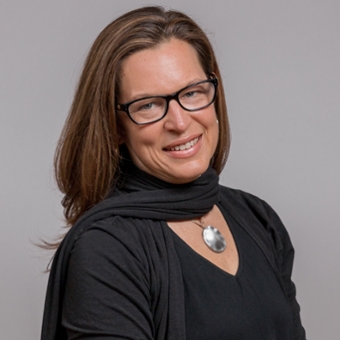
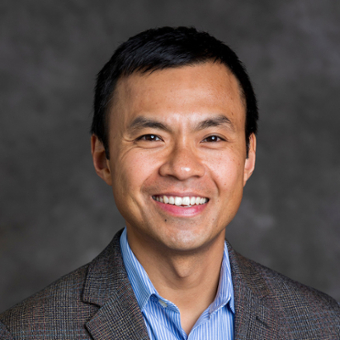 Freeden Blume Oeur and C.J. Pascoe
Freeden Blume Oeur and C.J. Pascoe
Thursday, March 23rd
Room 113, Pearlman Lounge
3:30 - 5:00pm
This year marks the 30th anniversary of Barrie Thorne’s book Gender Play: Girls and Boys in School, a landmark study of the social worlds of primary school children that sparked a paradigm shift in our understanding of how kids and the adults around them contest and reinforce gender boundaries. In our talk, we share highlights from our new edited volume, Gender Replay: On Kids, Schools, and Feminism, which reflects on the 30 years since the publication of this classic. We also chronicle the 30 years before the book, which saw the early years of the Brandeis Sociology graduate program--and the broader radical political movements taking hold in the Boston area and beyond--as foundational in shaping Thorne's thinking on and commitments to feminist practice and the worlds of kids.
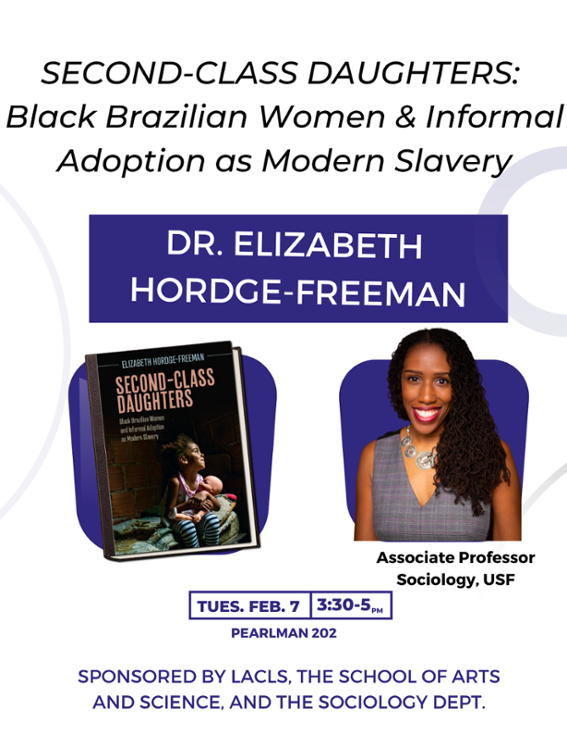
February 7, 2023
Dr. Elizabeth Hordge-Freeman
3:30-5 p.m. Feb. 7
Pearlman Rm 202
A legacy of the transatlantic slave trade, Brazil is home to the largest number of African descendants outside Africa and the greatest number of domestic workers in the world. Drawing on ten years of interviews and ethnographic research, the author examines the lives of marginalized informal domestic workers who are called "adopted daughters" but who live in slave-like conditions in the homes of their adoptive families. She traces a nuanced and, at times, disturbing account of how adopted daughters, who are trapped in a system of racial, gender, and class oppression, live with the coexistence of extreme forms of exploitation and seemingly loving familial interactions and affective relationships. Highlighting the humanity of her respondents, Hordge-Freeman examines how filhas de criação (raised daughters) navigate the realities of their structural constraints and in the context of pervasive norms of morality, gratitude, and kinship. In all, the author clarifies the link between contemporary and colonial forms of exploitation, while highlighting the resistance and agency of informal domestic workers.
2022
April 13, 2022
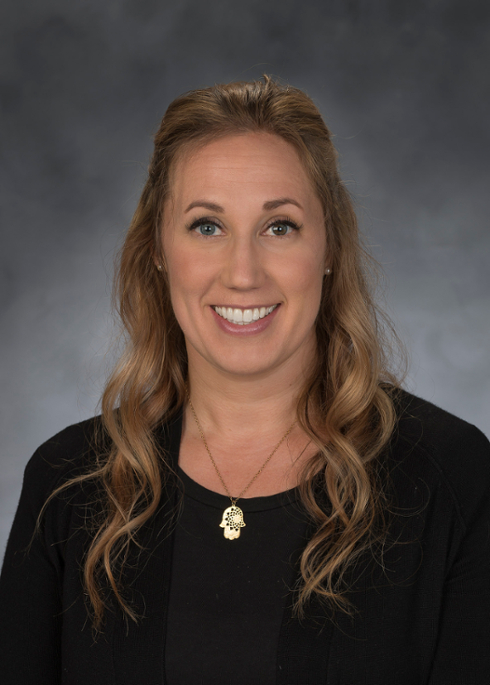
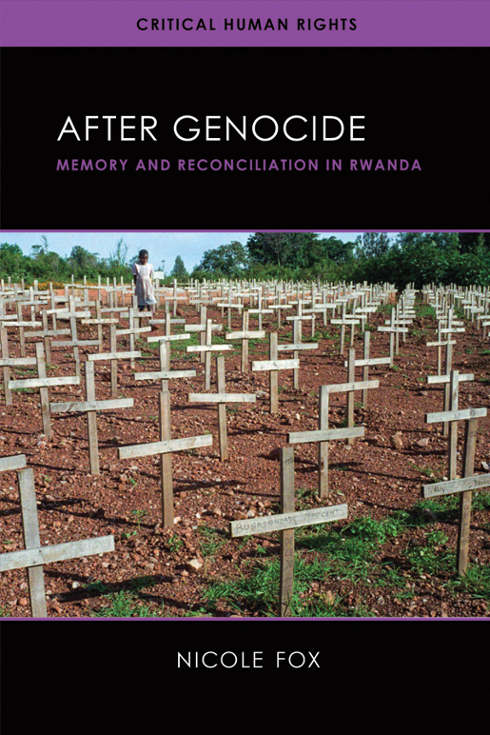
Nicole Fox, Brandeis Alum
12-1:30 p.m. | Schwartz 103
In the wake of unthinkable atrocities, it is reasonable to ask how any population can move on from the experience of genocide. Simply remembering the past can, in the shadow of mass death, be retraumatizing. So how can such momentous events be memorialized in a way that is productive and even healing for survivors? Nicole Fox’s 2021 book "After Genocide: Memory and Reconciliation in Rwanda: (University of Wisconsin Press) investigates such questions through extensive interviews with survivors’ decades after mass violence has ended. After Genocide reveals the relationship survivors have to memorial spaces and uncovers those voices silenced by the dominant narrative — arguing that the erasure of such stories is an act of violence itself.
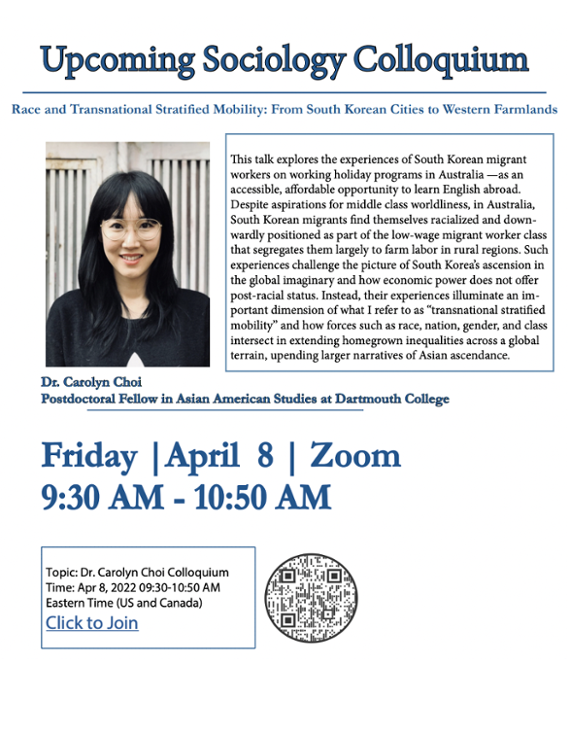
April 8, 2022
Dr. Carolyn Choi, Postdoctoral Fellow in Asian American Studies at Dartmouth College
9:30-10:50 a.m. April 8 | Zoom
This talk explores the experiences of South Korean migrant workers on working holiday programs in Australia — as an accessible, affordable opportunity to learn English abroad. Despite aspirations for middle class worldliness, in Australia, South Korean migrants find themselves racialized and downwardly positioned as part of the low-wage migrant worker class that segregates them largely to farm labor in rural regions. Such experiences challenge the picture of South Korea’s ascension in the global imaginary and how economic power does not offer post-racial status. Instead, their experiences illuminate an important dimension of what I refer to as “transnational stratified mobility” and how forces such as race, nation, gender, and class intersect in extending homegrown inequalities across a global terrain, upending larger narratives of Asian ascendance.
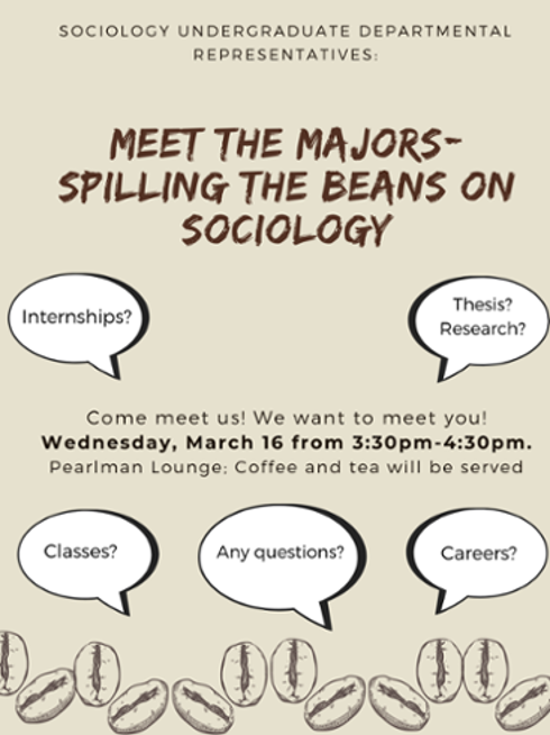
March 16, 2022
3:30-4:30 p.m. Wednesday, March 16 | Pearlman Lounge
Sociology Undergraduate Departmental Representatives:
Meet the Majors — Spilling the Beans on Sociology
Come meet us! We want to meet you!
Coffee and tea will be served
Internships? Careers? Thesis? Research? Classes? Any questions?
February 11, 2022
Joint Virtual Book Celebration hosted by Professor Siri Suh and Professor Gowri Vijayakumar
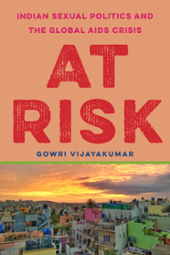
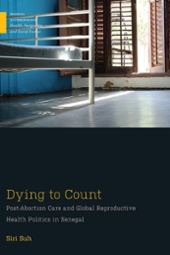
In conversation with Professor Zine Magubane, Boston College, and Professor Nitsan Chorev, Brown University.
12-2 p.m. Feb. 11, 2022
Moderated by Professor Sarah Mayorga, Brandeis University.
Brandeis Sociology is celebrating the release of two new faculty books:
- Professor Gowri Vijayakumar's "At Risk: Indian Sexual Politics and the Global AIDS Crisis"
- Professor Siri Suh's "Dying to Count: Post-Abortion Care and Global Reproductive Health Politics in Senegal"
2021
7:30-9 p.m. Oct. 26, 2021
Virtual Event via Zoom
This program will include a panel discussion about the strike and its bank robbery-murder aftermath. Panelists will include activists from the 1970s anti-war strike: Robbie Baer (Brandeis student alum), Barry Elkin (Brandeis student alum), Susan Townsend (Brandeis student alum), Jerry Zerkin (Brandeis student alum), Kathy Power (activist), Bob Weiser (activist), Professor Gordie Fellman (Brandeis sociologist), and Professor Bob Lange (retired physicist). A dedicated website has been created for this event which contains:
- Overview of the program and the panelists
- A comprehensive overview of the strike, including articles
- "From Rebellion to Revolution" — a video of a play written and performed by students in an American Studies course taught by retired Brandeis Professor Joyce Antler
- A special Strike edition of the Waltham Watch, a student publication from that era
This program is co-sponsored by: The School of Arts and Sciences; Department of Sociology; Social Justice and Social Policy (SJSP) program; and Peace, Conflict, and Coexistence Studies (PAX) program
For more details on this event, please contact Professor Gordie Fellman
March 10, 2021
"Racialized Organizations and Higher Education"
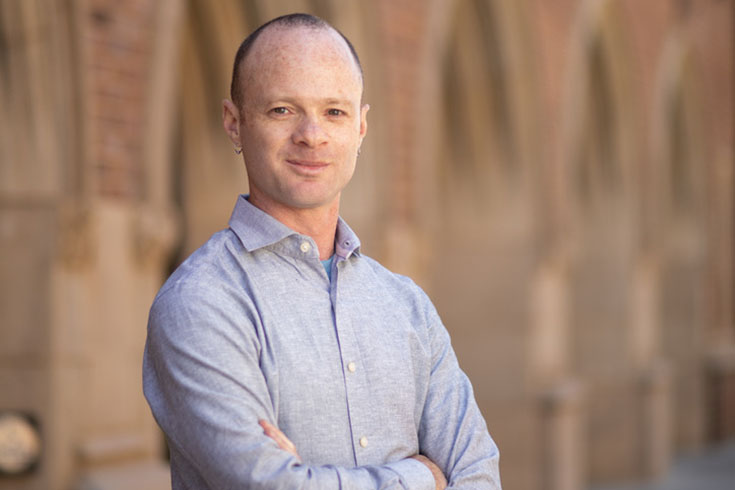
6-7:30 p.m. March 10, 2021
Victor Ray’s research applies critical race theory to classic sociological questions. He is currently working on two book manuscripts: a project focused on race and organizational theory and an edited volume (co-edited with Jennifer Mueller) on race and sociological theory writ large. His work has been published in the American Sociological Review, American Behavioral Scientist, Annals of the American Academy of Political and Social Science, Contexts, Ethnic and Racial Studies, The Journal of Marriage and Family, Sociology of Race and Ethnicity and Sociological Theory. In addition to this research, Victor is also an active public scholar, publishing commentary in outlets such as The Washington Post, Newsweek, and Boston Review. Victor’s work has been funded by the Ford Foundation, and the National Science Foundation, among others.
His talk will be about higher education institutions as racialized organizations.
April 28, 2021
"The Virtual Sojourner - Black Feminist Activism and Culture in the Digital Age"
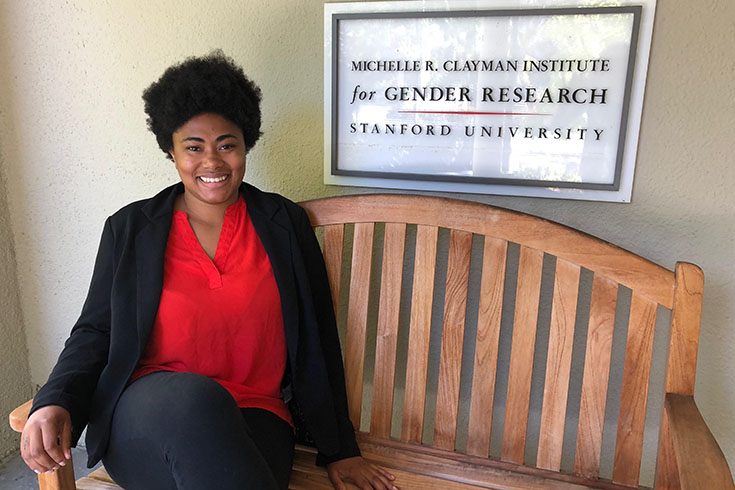
2-3:30 p.m. April 28, 2021
On May 25, 2020, 17-year-old Darnella Frazier took out her smartphone and started to record. While most teenagers use their smartphone cameras to shoot dances for Tik Tok, Darnella used her camera for bearing witness. How Darnella used her smartphone camera to witness the injustice of George Floyd's killing demonstrates the complex positionality of Black people in the digital age. Darnella reported that witnessing George's death had traumatized her. The video's circulation online had led to internet harassment from people who questioned her choice to record George's last moments.
Thus, while information and communication technologies enable Black people to document and amplify state violence to mobilize people to demand social change and systemic reform, the visibility social media affords these technology users also comes with harmful effects. I refer to these technology users as virtual sojourners — outsiders within of the digital age who leverage digital tools and innovate digital practices to create new avenues for visibility within a sociotechnical system that also endows members of dominant groups to use the same tools to perpetuate marginalization through digital practices that facilitate co-optation, erasure, and appropriation. To elaborate on the concept of a virtual sojourner in this talk, I center Black women and LGBTQ digital technology users because their experience arises from a complex positionality rooted in the social construction of Black womanhood and queerness marginal to mainstream standards of gender and sexuality. I argue Black women and LGBTQ people act as virtual sojourners by creating and maintaining virtual counterpublics and digital enclaves where they self-author, self-define, and self-determine a Black feminist and queer forms of culture and activism. Nevertheless, virtual sojourners remain an understated phenomenon due to how the features of information and communication technologies serve the dual function of facilitating both visibility and erasure. To magnify this tension, I analyze the digital practices of members of these groups to examine how they navigate the power relations that arise from the virtual public sphere as shaped by the matrix of domination — how domains of power function together to produce a complex constellation of inequalities and potentialities for people on the margins.
Co-sponsored by Women's, Gender and Sexuality Studies and African and African American Studies
April 29, 2021
"COVID-19 Death Gaps: Understanding How Race, Class, and Gendered Systems Unequally Shape Pandemic Health Outcomes"
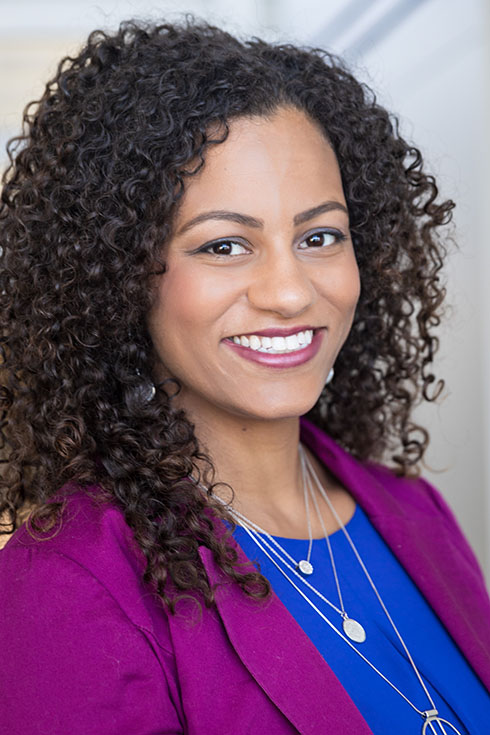
12-1:30 p.m. April 29, 2021
Health sociologists have long explained how socioeconomic status, and later racism, are basic root causes of health disparities. I extend this work to argue that racial capitalism, or the idea that racialized exploitation and capital accumulation are mutually reinformed systems, structure health inequities. Furthermore, these intersecting systems are exacerbated in the face of additional forms of oppression, such as patriarchy, and in times of health crises. Synthesizing early reports and preliminary empirical studies, I demonstrate how multiple, overlapping mechanisms shape the excess deaths in COVID-19 across and between racial lines. This analysis demonstrates that health inequities will continue to be replicated unless we can fundamentally change our unequal system.
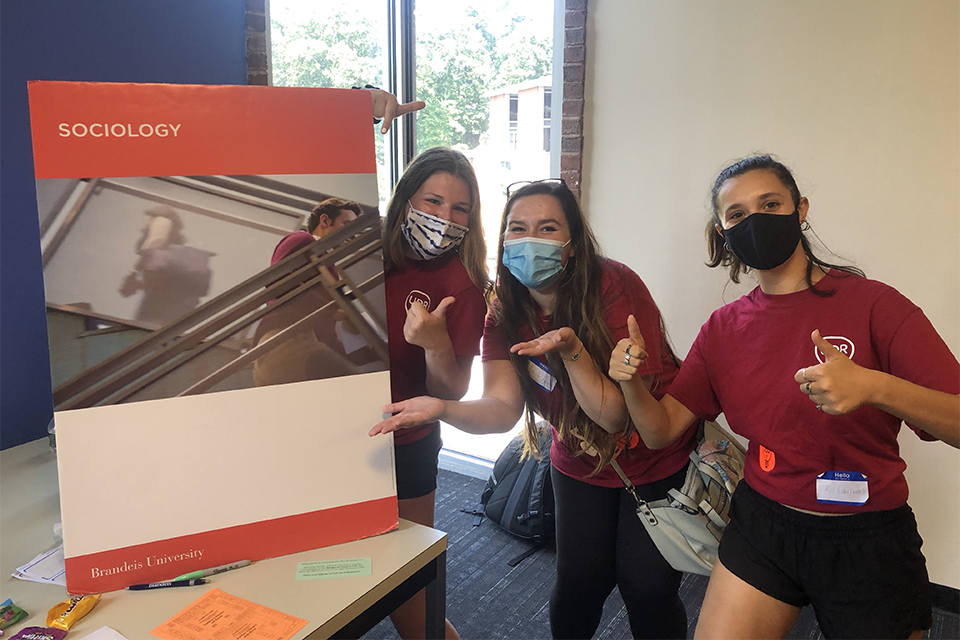 Representatives from academic departments are available to answer your questions regarding course selection, departmental offerings, student services, and more. This year, Sociology UDRs Rachel Judson, Mariah Lewis, and Ali Hagani attended the fair.
Representatives from academic departments are available to answer your questions regarding course selection, departmental offerings, student services, and more. This year, Sociology UDRs Rachel Judson, Mariah Lewis, and Ali Hagani attended the fair.
What do you know about the Black Panther Party? What lessons can the BPP offer us today? Join us for our first “Sociologists watch movies, too!” event to discuss The Black Panthers: Vanguard of the Revolution (2015). This is a two-part event.
Part 1 (asynchronous viewing): students will watch the (excellent!) documentary on their own time, when it’s convenient for them. Want to host a Zoom watch party with your friends? Go for it! The film we’re watching, The Black Panthers: Vanguard of the Revolution documentary, is available for FREE via Brandeis Kanopy.
Part 2 (synchronous conversation): Join Professor Vijayakumar, Professor Mayorga, & your peers to discuss the film! We’ll build community and learn together, connecting this important chapter in US history to what’s happening in 2021. The discussion will be Wednesday, 3/31 from 2-3:30pm via Zoom during Professor Vijayakumar’s “Protest, Politics, and Change: Social Movements” class session.
What is white supremacy? What is its relationship to white nationalism? What does all this have to do with the events of January 6th at the Capitol? Join Professor Mayorga from the Sociology Department and your peers to discuss these important questions and more on Friday, February 19 from 12:30-1:30pm. This is the first in the Sociology Department's new "Let's talk about..." series, where students and faculty come together to discuss current events through a sociological lens.
If you have time, you may want to check out this podcast episode on the symbols of white nationalism that were present during the Capitol insurrection. Have questions or specific topics you want to discuss? Share them with Professor Mayorga in advance here.
2020
April 23, 2020
"Rights on Trial: How Workplace Discrimination Law Perpetuates Inequality (or Why #MeToo Can’t Win in Court"
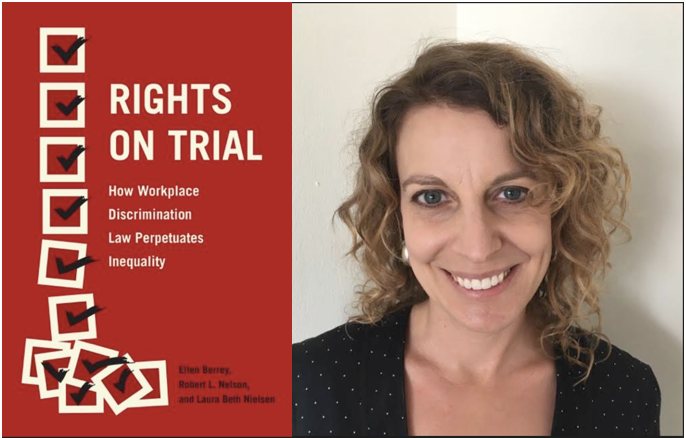
2019
Arlie Hochschild, Professor Emerita of Sociology at the University of California, Berkley
2018
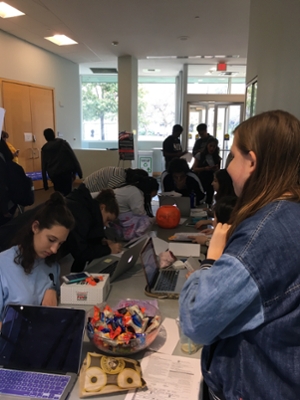
Miranda Waggoner, Assistant Professor at Florida State University
2017
Wendy Roth, Associate Professor of Sociology at the University of British Columbia
Onoso Imoagene, Assistant Professor of Sociology at the University of Pennsylvania
2016
Carla Shedd, Assistant Professor of Sociology and African American Studies at Columbia University
Allison Pugh, Associate Professor of Sociology at University of Virginia
Natasha Warikoo, Associate Professor of Education at Harvard Graduate School of Education
Ya-Wen Lei, Assistant Professor of Sociology at Harvard University
Arlie Hochschild, Emerita Professor of Sociology at UC Berekely
Iddo Tavory, Assistant Professor of Sociology at New York University
Peter Berger, University Professor of Sociology, Emeritus, at Boston University and the founder and Senior Research Fellow of the Institute on Culture, Religion, and World Affairs
Rafi Grosglik, Post Doc Visiting Scholar in the Sociology Department
Helle Porsdam, Professor of American Studies at the University of Copenhagen
2015
Rowena He, Lecturer, Department of Government, Harvard University
Kimberly Hoang, Assistant Professor of Sociology and International Studies at Boston College
2014
Howard Winant, Professor of Sociology at the University of California and founding director of the University of California Center for New Racial Studies (UCCNRS)
Adam Hochschild, Acclaimed Author, Journalist, and Lecturer, UC Berkeley, Graduate School of Journalism
2013 and earlier
Grete Brochmann, Professor of Sociology, University of Oslo
Co-sponsored by the Center for German and European Studies, Department of Politics, International Global Studies, Heller School for Social Policy and Management
Ofer Sharone, Sociologist and Assistant Professor, Institute of Work & Employment Relations, MIT Sloan
Gretchen Purser, Assistant Professor of Sociology, Syracuse University
Co-sponsor:The Martin Weiner Distinguished Lecturer Fund
Liah Greenfeld, Professor of Sociology, Political Science, and Anthropology, Boston University
Co-sponsors: The Martin Weiner Distinguished Lecturers Fund and the Department of Psychology
Mary Bernstein, Professor of Sociology, University of Connecticut at Storrs, Leading Scholar in Queer Politics
Co-sponsors: The Martin Weiner Distinguished Lecturers Fund, The Women's and Gender Studies Program
Matthew Kaliner, Doctoral Candidate in Sociology, Harvard University (Brandeis University ’00)
Co-sponsor: The Martin Weiner Distinguished Lecturers Fund
Doug Harper PhD ’76, Professor of Sociology, Duquesne University
Japonica Brown-Saracino, Assistant Professor of Sociology, Boston University
Co-sponsored with the Interdepartmental Program in Women's and Gender Studies
Steve Epstein, John C. Shaffer Professor in the Humanities, Northwestern University
Co-author of Three shots at Prevention: The HPV vaccine and the Politics of Medicine's Simple Solutions
Co-sponsored with the Interdepartmental Program in Women's and Gender Studies
Amy Schalet, University of Massachusetts-Amherst
Catherine Turco, MIT
Professor Donald W. Light Rutgers, UDMNJ-SOM
Sponsored by: Department of Sociology, Martin Weiner Distinguished Lecturers Fund, and Heller School of Social Policy and Management
Professor Sarah Sobieraj, Tufts University
Sponsored by Department of Sociology and Martin Weiner Distinguished Lecturers Fund
Professor Peggy Levitt, Wellesley College, Senior Research Fellow
Sponsored by: Department of Sociology and Martin Weiner Distinguished Lecturers Fund
Professor Sabrina McCormick, Science and Technology Fellow, AAAS
Sponsored by: Department of Sociology and Martin Weiner Distinguished Lecturers Fund, Environmental Studies Program, and Health: Science, Society, and Policy Program
Professor Tom Shapiro
Professor Rene Almeling
Professor Michele Lamont
Professor Shamus Khan
Professor Ayla Guseva
Professor Peter Bearman, Jonathan Cole Professor of Social Sciences Director of Lazarsfeld Center for the Social Sciences at Columbia University
Professor C. Shawn McGuffey
Professor Kelly Joyce, The College of William and Mary
Professor Sammy Smooha, University of Haifa
Professor Matt Desmond, Harvard University
Professor Courtney Bender, Columbia University
Dr. Ana Villalobos, PhD, University of California at Berkeley
Visiting Research Associate at the Department of Sociology, Brandeis
Professor Barrie Thorne, PhD’71
The Department of Sociology presents Professor Barrie Thorne, Brandeis Sociology PhD ’71, Professor of Sociology and Women's Studies, UC Berkeley. Professor Thorne is an eminent alum and a first rate ethnographer of children who recently finished fieldwork on "California Childhoods," funded by the MacArthur Foundation.
Zinner Forum, Heller school
"Left" political parties have been the major pole of opposition in capitalist market societies and the bearers of progressive change since the industrial revolution. They have insisted that governments assume responsibilities for correcting inequality, insecurity, market failures and externalities, and skewed opportunity structures. They have been fundamental in making democracy a mass phenomenon. They have promoted the expansion of rights from civil into political and social realms. They have provided people with visions of alternative social orders.
The collapse of actually existing socialism in the end of the Cold War made market societies the only game on the planet and discredited historical Left transformational utopias once and for all. Globalization has already made permeable many of the borders behind which Lefts felt able to pursue their programs. One consequence of all these changes is that socialist dreams, along with the word socialism itself, have disappeared.
It is deeply significant that in the media and professional political analysis what up until recently was called "the Left" is now widely labeled the "Center-Left." The political space and options of the political parties of the Left and Center Left that seek to govern have been narrowed and they have large new problems of connection with voters and constituents.